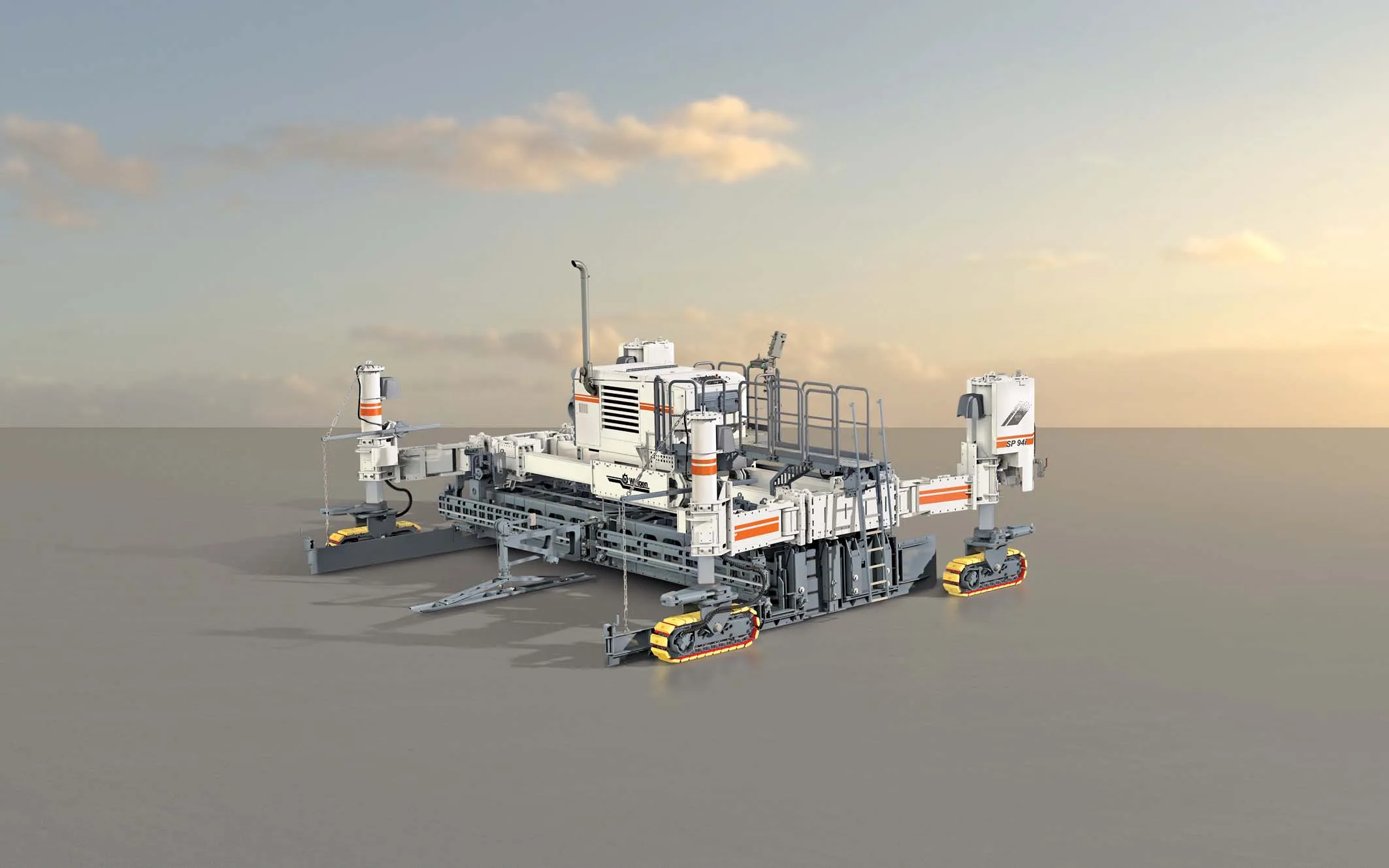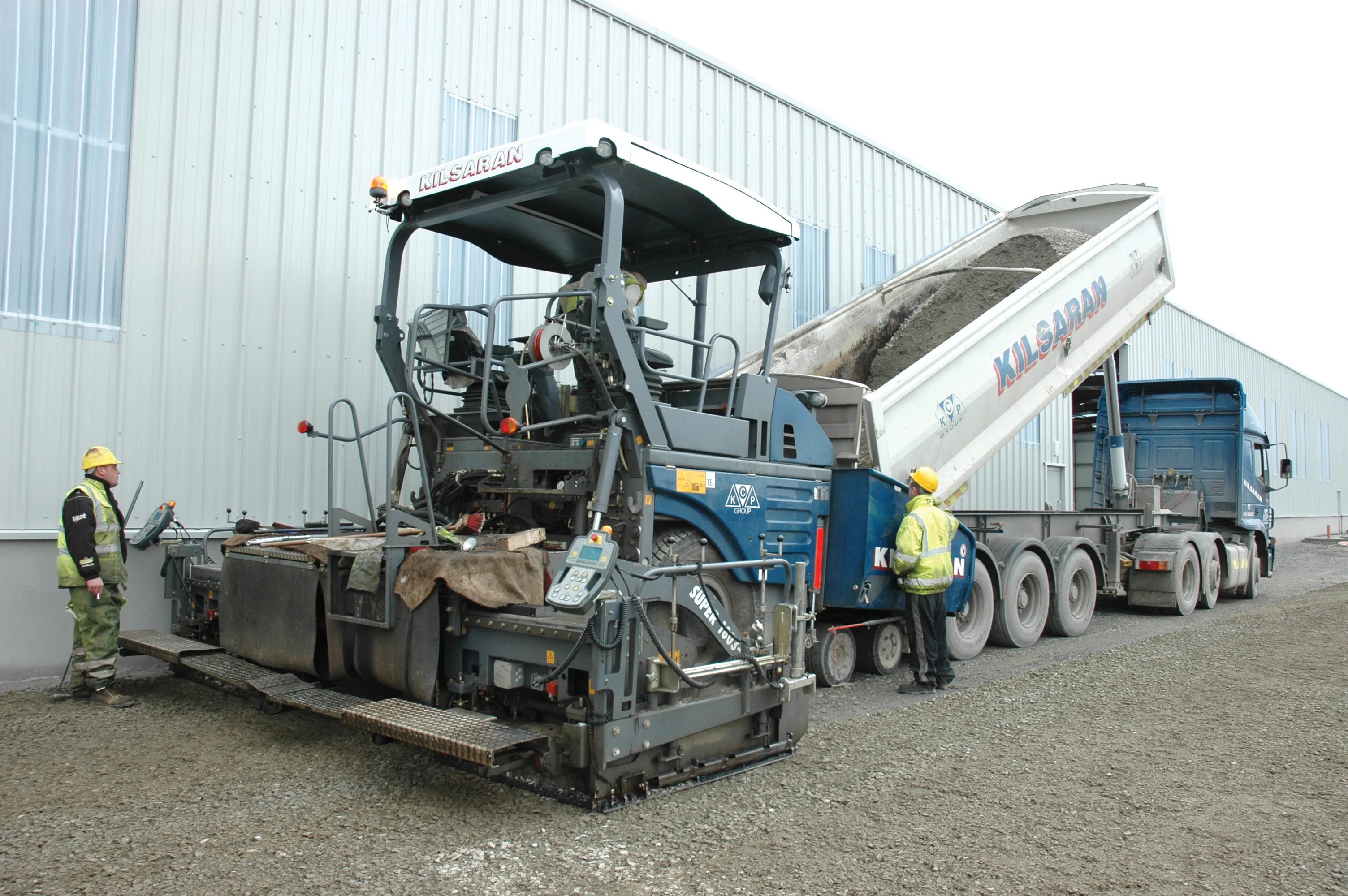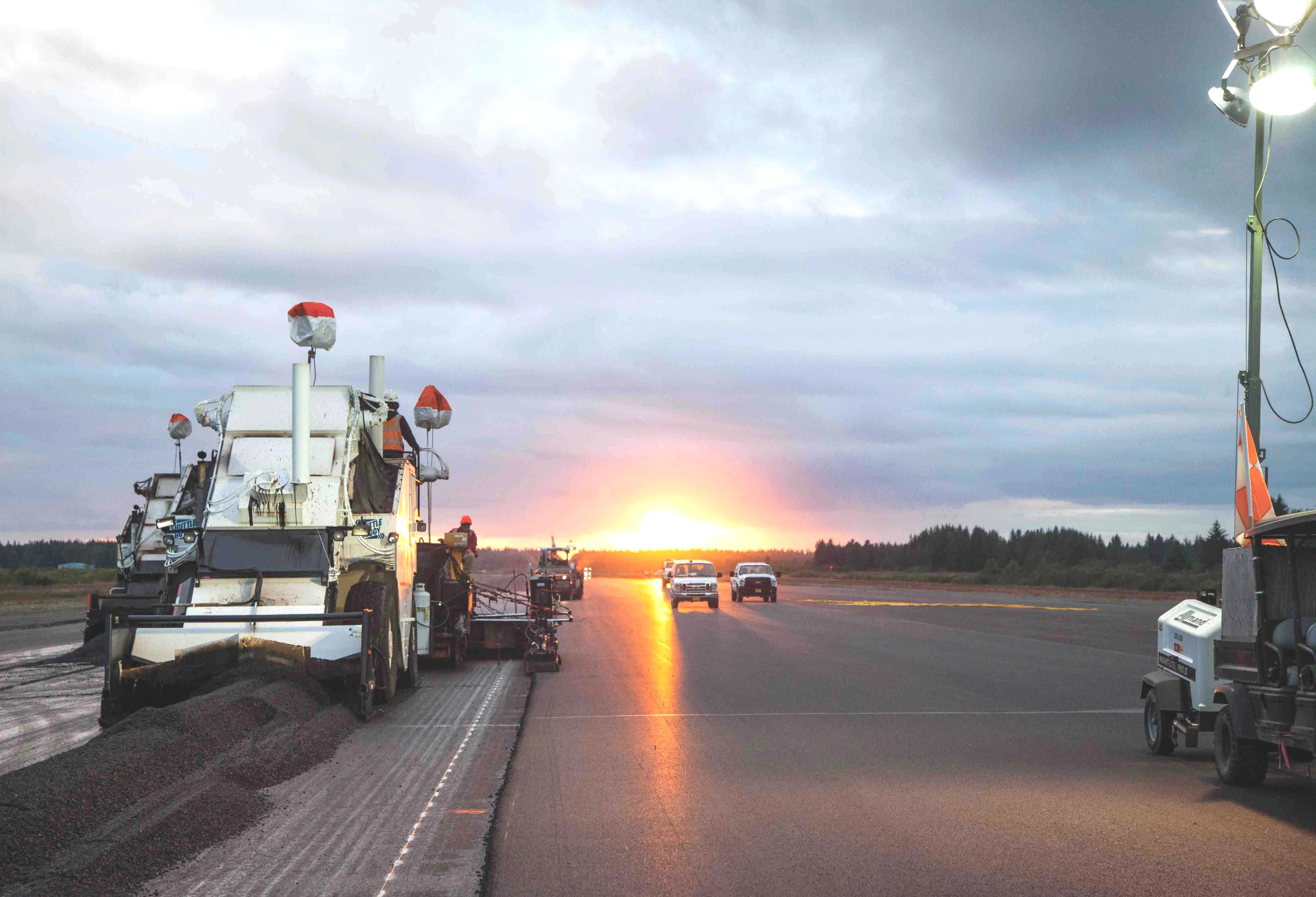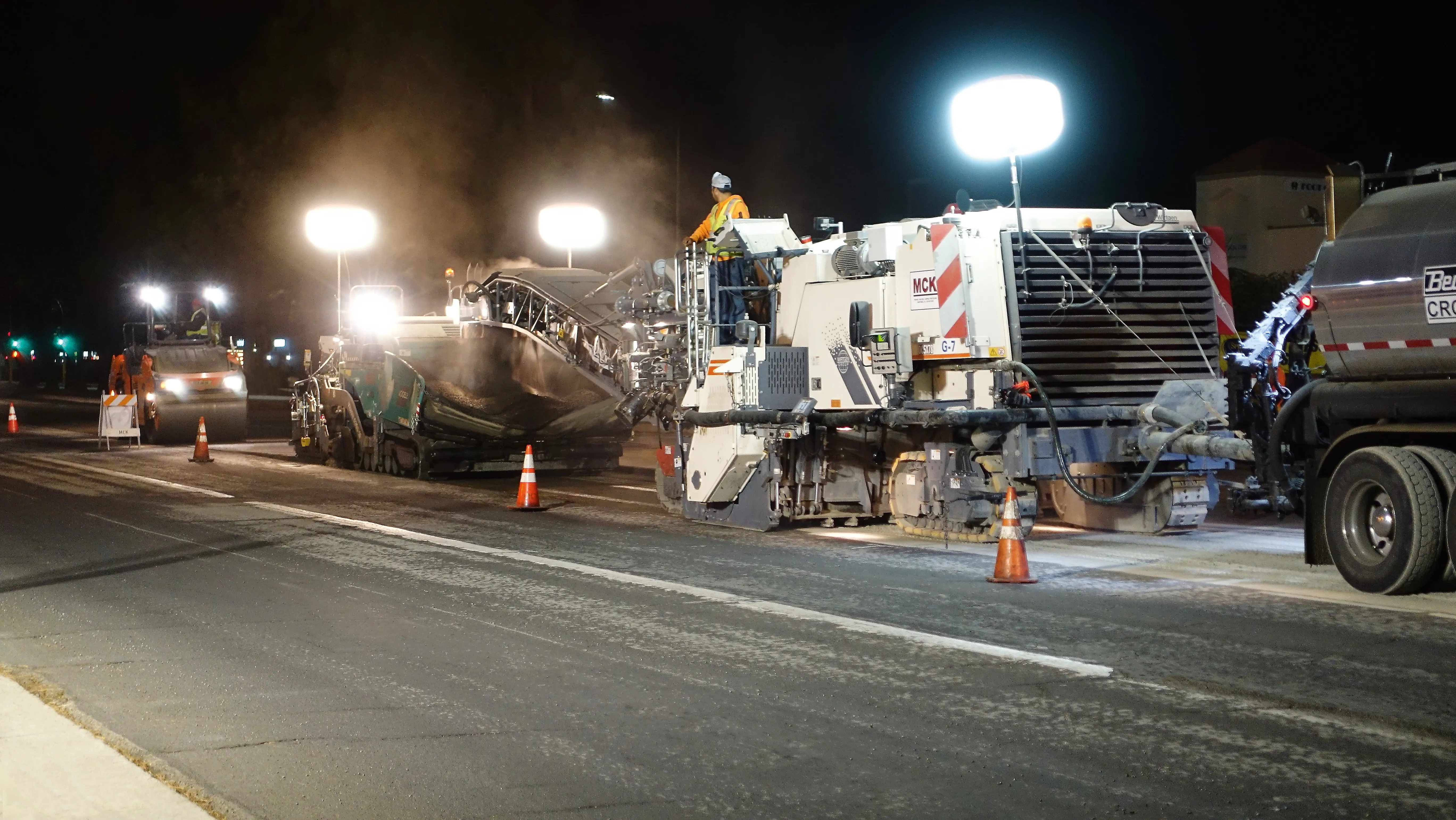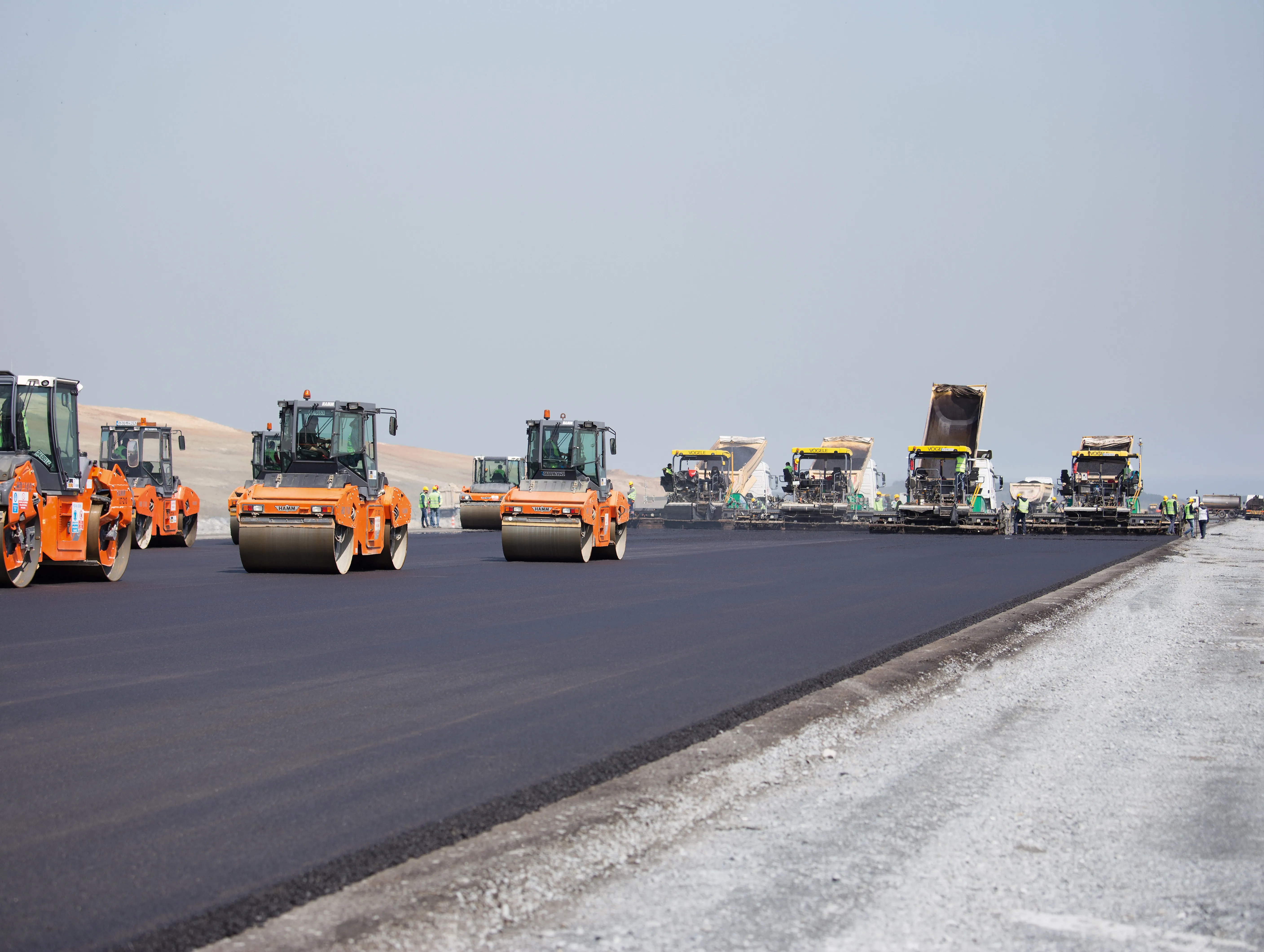
When it is complete, this will be the world’s largest airport and will be able to handle 150-200 million passengers/year as well as 6 million tonnes of freight/year. This will make the facility substantially larger than the world’s current largest airport, the Hartsfield-Jackson Atlanta International Airport, which handles around 105 million passengers/year.
The new facility is being constructed on the site of a former surface mining operation located 35km to the north of Istanbul. However, the ground conditions are less than optimal and have required extensive consolidation and preparation work.
Plant and machines from
Machines and technology from the Wirtgen Group are being used widely across the project by the developer GA, a consortium of Turkey’s five leading contractors:
The earthworks for the new airport have proven a major project in themselves. On this 9,000ha site, the challenge was to construct a base with a high load-bearing capacity. The consortium has used 10 of the 16tonne Hamm 3516 rollers to compact the non-cohesive soils of gravel and crushed stone, with high centrifugal forces and static linear loads proving valuable. The soil compactors worked in strips, compacting the soils that had been placed by trucks and spread by graders.
The six Benninghoven asphalt mixing plants are crucial to material supplies for the site, which is employing around 3,000 trucks in all for transport, many of which are carrying the asphalt to the paving crews.
The high-quality asphalt mix for the runway construction is being produced by a TBA 3000 and a TBA 4000, as well as two ECO 3000 and two ECO 4000 plants. In total, the six plants can output asphalt at a rate of up to 1,680tonnes/hour, depending on the type of mix to be produced. The mix for the surface course consists of a stone mastic asphalt with polymer-modified bitumen. The material is used for surfaces which are subjected to heavy stresses, such as aircraft take-offs and landings, and consists of a mix with a high proportion of stone, polymer-modified bitumen and stabilising additives for the bitumen. The composition is balanced so as to ensure lasting resistance to deformation, producing surface courses that are robust, safe for traffic and have a long service life.
The Benninghoven ECO suits duties on temporary sites, as in Istanbul. It combines the latest Benninghoven technologies with a high standard of production, all within compact containers, for mobility and versatility. The ECO plants can be operated as stationary units, but can also handle rapid changes of location without difficulty. Since all main components are designed in ISO standard containers, they are also easy to transport.
A total of 12 Vögele pavers are in operation, laying down asphalt for the runways and a number of taxiways. In addition to the three modern Dash 3 generation of SUPER 2100-3 pavers, some of the paving teams are also using earlier models. There are three of the SUPER 2100-2s and six of the slightly smaller SUPER 1900-2 pavers. These units are constructing the first three of a total of six runways, comprising a 290mm base course, a 120mm binder course and a 40mm surface course.
The fleet of 12 Vögele pavers is equipped with extending or fixed-width screeds of types AB 600 TV or SB 250 TV. The AB 600 extending screeds have a basic width of 3m and can pave at widths of up to 9.5m when fitted with bolt-on extensions. On the airport job site, the Highway Class pavers SUPER 1900-2 operate with the AB 600 TV extending screed at a width of 7.5m. The SUPER 2100-2 and SUPER 2100-3 pavers are also in the Highway Class and operate with SB 250 fixed-width screeds. Their basic width is 2.5 m, but this can be extended to 13m using fixed and hydraulic bolt-on extensions. On the job site, the working width is 12m. In this configuration, the tracked pavers work hot to hot, maximising both quality and productivity as they pave the 3,750m or 4,100m-long and 75m-wide runways and a number of taxiways, giving a total area of 2.2 million m².
Meanwhile, a total of around 20 Hamm Series HD+ and HD tandem rollers are being used to compact the vast asphalt surfaces. They ensure rapid compaction and high area outputs thanks to the large drums. The kneading effect of the GRW 280-10 and GRW 15 rubber tyred rollers ensure surface sealing.
In addition to the asphalt machines, a fleet of Wirtgen slipform pavers is also being used for paving the concrete taxiways. With so many Wirtgen Group machines operating at the project, it made sense for the GA consortium electing to use the slipform pavers and texture cure machines from Wirtgen also. Initially, two SP 500 models with dowel-bar inserters, one SP 25 and one TCM 95 texture curing machine were used for the concrete paving work. They are paving taxiways with a depth of 400mm and a width of 2-6m. As the units proved successful on the project, the customer ordered further machines including an SP 500, one of the last concrete pavers of this type manufactured, and a TCM 95 texture cure machine. The SP 500 has since been replaced by the new SP 60 series. The slipform pavers in this series are proven masters in inset and offset applications and can be equipped with a range of options, including a dowel-bar inserter. This is the case for the three SP 500 machines in Istanbul. They insert dowels at intervals of 380-500mm, ensuring the correct height of adjacent slabs.
The TCM 95 texture cure machine ensures the optimum texture for concrete surfacing, and is well-matched for use with the SP 500 or newer SP 60 and SP 90 paver models. The texture curing machine is equipped with an automatic spraying and brooming system. Once the surface has been broomed to the desired texture, the spraying system applies dispersion to the fresh concrete surfacing to retard the evaporation of curing moisture, preventing stresses and the cracks this can cause. The TCM 95 is equipped with a four-wheeled chassis and covers working widths of up to 9.5m.


